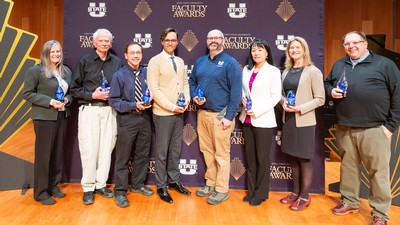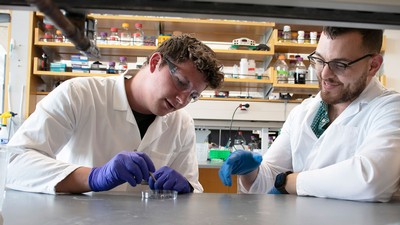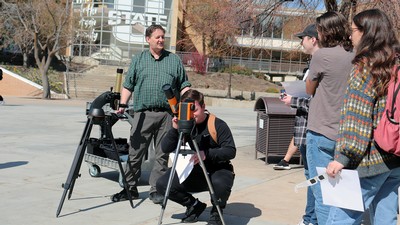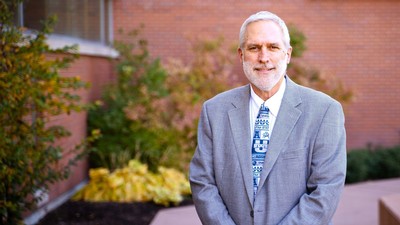History Professor James Sanders Receives a Prestigious Kluge Fellowship
Department of history faculty member James Sanders is the recipient of a Kluge Fellowship at the Library of Congress. Notification of his appointment as a Kluge postdoctoral fellow came from James H. Billington, the librarian of Congress.
Utah State University Executive Vice President and Provost Raymond T. Coward said the Kluge Fellowship is a highly competitive and prestigious award.
The fellowship includes a five-month residency in Washington, D.C., where Sanders will pursue his research on 19th century democracies in Latin America. Sanders will complete fall semester on campus, then begin his fellowship in January 2007. The title of his proposed project that culminates in a book is “Democracy in the New World: Imagining Politics, the West, and the 19th Century Atlantic World.”
Sanders said he has already completed research for the book in Colombia, Mexico and Uruguay. He will return to Mexico at some point following the fellowship.
“The Library of Congress is a great research site for this project,” Sanders said. “It collects materials from all over Latin America — very useful for a comparative project such as mine.”
The John W. Kluge Center is located at the Library of Congress in Washington, D.C. According to its Web site, the center especially encourages humanistic and social science research that makes use of the library’s large and varied collections. Among the collections available are the world’s largest law library and outstanding multi-lingual collections of books and periodicals. Special collections of manuscripts, maps, music, films, recorded sound, prints and photographs are also available.
“I am delighted that Dr. Sanders has been chosen as a Kluge Fellow at the Library of Congress,” said history department head Norm Jones. “It is a very competitive fellowship, open to people in all fields of scholarship from all over the world.”
Sanders’s selection is indicative of the interest shown in his research on 19th century democracies in Latin America, Jones said. The fellowship also provides an opportunity for Sanders to expand his knowledge and scholarly network.
“The learning he brings home and the people he meets will benefit our students enormously,” Jones said.
In his fellowship application, Sanders said the project would focus on how Latin Americans understood the international history of republicanism and democracy in their own societies, as well as developments in Europe and the United States.
“Latin Americans generally assumed their republics to be as politically modern as any in the 19th century world,” Sanders said. “Most of Europe still toiled under monarchies. New World republicans thought of themselves as not imitating Europe, by advancing beyond it. … While many historians still assume the United States led democratic experimentation, in Colombia alone, ex-slaves enjoyed full citizenship and suffrage rights by 1853, years before the brief period of U.S. Reconstruction.”
Sanders is an assistant professor in the department of history specializing in the history of 19th century Latin America and the Atlantic World. His first book, Contentious Republicans (Duke University Press), explores how indigenous groups, ex-slaves and small farmers created democratic politics in 19th century Colombia. He earned his bachelor’s degree from the University of Florida, and his master’s and doctorate from the University of Pittsburgh. Before arriving at USU in 2003, he taught at the University of Pittsburgh, Southern Methodist University and Brooklyn College.
Writer: Patrick Williams (435) 797-1354, patrick.williams@usu.edu
Contact: James Sanders (435) 797-1294, jsanders@hass.usu.eduHistory professor James Sanders, recipient of a prestigious Kluge Fellowshipe, will study at the John W. Kluge Center at the Library of Congress.
TOPICS
History 138storiesComments and questions regarding this article may be directed to the contact person listed on this page.






